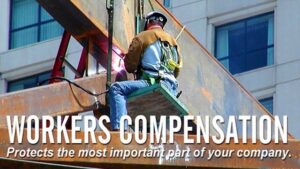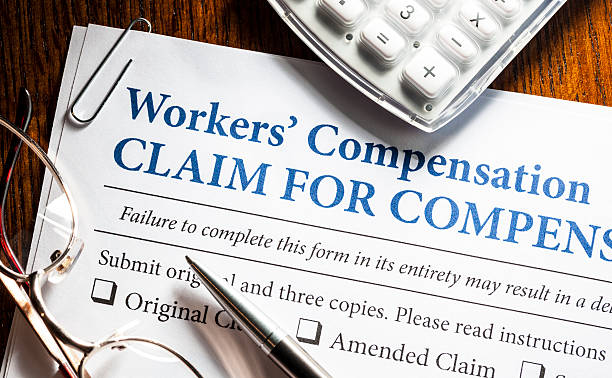 In the state of California, every employee (not a family member) working for a contractor must be covered by Workers Compensation insurance. Not having proper Workers Compensation insurance in accordance with California Business and Professions Code Section 7125 et seq. can lead to serious ramifications for contractors, including having to pay back any compensation provided to them on any given project, no matter where the project is at in the construction phase. California Business and Professions Code Section 7031 et seq. Workers Compensation insurance is serious business in California and contractors must abide by the laws to avoid significant legal issues and potentially lose their license. To defraud the state of California by failing to pay insurance for employees or under report the type of work or amount of work being conducted has equal penalties for contractors. Importantly, consumers are the ultimate losers as insurance claims against uninsured or underinsured contractors end up being distributed to California citizens.
In the state of California, every employee (not a family member) working for a contractor must be covered by Workers Compensation insurance. Not having proper Workers Compensation insurance in accordance with California Business and Professions Code Section 7125 et seq. can lead to serious ramifications for contractors, including having to pay back any compensation provided to them on any given project, no matter where the project is at in the construction phase. California Business and Professions Code Section 7031 et seq. Workers Compensation insurance is serious business in California and contractors must abide by the laws to avoid significant legal issues and potentially lose their license. To defraud the state of California by failing to pay insurance for employees or under report the type of work or amount of work being conducted has equal penalties for contractors. Importantly, consumers are the ultimate losers as insurance claims against uninsured or underinsured contractors end up being distributed to California citizens.
If Minimum Requirements Aren’t Met A Contractor’s License Can Be Suspended
Contractors who have been in business for many years know they must carry adequate Workers Compensation insurance, so the requirements are never even questioned by them. Not only will they uphold their license by abiding by these laws, but they’ll also maintain their positive business reputation. Homeowners aren’t usually willing to take major risks on an under-reporting or non-reporting contractor, especially when the potential result could be having to pay for a worker’s injuries for the rest of their life. Therefore, it’s best for all parties involved, especially for the contractor, to ensure every worker is covered properly under a Workers Compensation insurance policy. If a non-insurance injury occurs on a private property, the homeowner and their personal property insurance will be obligated to the injured employee – even in a wrongful death action. The Privette doctrine of owner non-liability does not apply where the injured employee was not insured Privette v. Superior Court (1993) 5 Cal.4th 689.
A Contractor’s License Can Be Suspended Automatically
There are two basic situations in which a contractor’s license will be suspended when it revolves around Workers Compensation insurance. The first is the contractor’s failure to obtain adequate Workers Compensation insurance. The second is the contractor’s failure to maintain adequate Workers Compensation insurance. It is the full responsibility of the contractor to ensure both are taken care of before doing any work. A typical fact pattern for contractors cutting corners will under report to their insurance broker that their iron workers were actually hanging sheetrock, a much less dangerous occupation which has a lower insurance premium.
 California Business and Professions Code Section 7125.2 states “[t]he failure of a licensee to obtain or maintain workers’ comp insurance coverage, if required, shall result in the automatic suspension of the license by operation of law[.]” In one situation, a contractor failed to obtain Workers Compensation insurance for all of his employees for a routine residential job. Wright v. Issak 149 Cal.App. 4th 1116 (2007). The court in Wright said that the moment the under insured employee began work on the project his contractor was unlicensed by operation of law. Since the contractor was deemed to be unlicensed at the time the project began, he had to pay the homeowner back every bit of compensation paid to him. California Business and Professions Code 7028, 7031, et. seq. There were no problems with his work, but the laws mandate an unlicensed contractor cannot work on these types of projects legally. The suspension of a contractor’s license is effective on the day they fail to obtain Workers Compensation insurance or on the day they did not maintain the insurance at the level that is required by the law.
California Business and Professions Code Section 7125.2 states “[t]he failure of a licensee to obtain or maintain workers’ comp insurance coverage, if required, shall result in the automatic suspension of the license by operation of law[.]” In one situation, a contractor failed to obtain Workers Compensation insurance for all of his employees for a routine residential job. Wright v. Issak 149 Cal.App. 4th 1116 (2007). The court in Wright said that the moment the under insured employee began work on the project his contractor was unlicensed by operation of law. Since the contractor was deemed to be unlicensed at the time the project began, he had to pay the homeowner back every bit of compensation paid to him. California Business and Professions Code 7028, 7031, et. seq. There were no problems with his work, but the laws mandate an unlicensed contractor cannot work on these types of projects legally. The suspension of a contractor’s license is effective on the day they fail to obtain Workers Compensation insurance or on the day they did not maintain the insurance at the level that is required by the law.
What Could Happen When Contractors Work Under A Suspended License?
A lawsuit in California was filed by a contractor against a homeowner claiming foreclosure of a mechanic’s lien for payments that were owed, but not made, and also for a breach of contract. The homeowner then filed a countersuit against the contractor claiming the contractor was unlicensed due

to not paying Workers Compensation insurance. When the case went to court, it was determined the contractor had to pay back all compensation the homeowner provided previously, and he was not able to receive any of the compensation he believed he was owed.
It was proven in this case that the contractor was under-reporting his payroll to the State Compensation Insurance Fund, which was a clear violation and led to the claim of failure to obtain Workers Compensation insurance. Since the suspended license was effective on the day the insurance was not obtained, the contractor had to pay back every bit of compensation received on that particular project. These laws are clearly stated in California Business and Professions Code Sections 7031(a) and 7031(b).
This situation proves how the state of California handles unlicensed contractors, and most of the time they aren’t given the benefit of the doubt when they don’t carry proper Workers Compensation insurance. Sometimes the contractor simply overlooks the fact that they didn’t maintain their insurance, while other times it’s avoided purposefully. No matter what the intentions of the contractor are, not obtaining or maintaining Workers Compensation insurance makes it illegal to work on any given project in California.
Do Homeowners Carry Any Risk?
Homeowners often unknowingly take on a significant amount of risk when they hire contractors. When hiring an under-reporting contractor, or one who doesn’t report at all, the homeowner and/or the homeowner’s insurance company could be liable for all injuries a worker sustains on their property. Of course, they may be able to claim back any money paid to the contractor since they were unlicensed at the time of the injury, but the amount owed to cover any injuries will likely be much more significant. These indemnification claims are tricky, sometimes lengthy and may not be able to cover your attorney’s fees and costs – which could render your action cost prohibitive.
Thoroughly Check Out Your Contractor
Ask any contractor you are considering hiring as many questions as possible about their business, including what liability and Workers Compensation insurance policies they have in place. If a contractor fails to give you a clear answer or doesn’t emphasize any importance about carrying adequate insurance, homeowners can protect themselves by pursuing other options. Contractors should be transparent as much as possible, and homeowners have every right to demand transparency when the risks are taken into consideration. Specifically, ask for physical copies of insurance policies and ask to be named as an additional insured on their commercial general liability policy.
or doesn’t emphasize any importance about carrying adequate insurance, homeowners can protect themselves by pursuing other options. Contractors should be transparent as much as possible, and homeowners have every right to demand transparency when the risks are taken into consideration. Specifically, ask for physical copies of insurance policies and ask to be named as an additional insured on their commercial general liability policy.
The best thing homeowners can do is to do their due diligence on a contractor before hiring them. Trying to save money by hiring the contractor with the lowest price might work out well and sound like an attractive option, but the risk is much higher as well. Depending on the extent of an injury sustained at the home, the homeowner may have to pay the worker for the rest of their life. Homeowners insurance policies will often cover these types of injuries to some degree but relying on the coverage completely isn’t always the wisest thing to do.
Don’t Take Short Cuts with Your Contractors
Contractors, employees and homeowners all benefit from Workers Compensation insurance, and all carry a significant amount of risk if adequate protection is not in place. The state of California will not budge on these laws, so it’s in the contractor’s best interest to always ensure they have the protection needed to uphold their license and remain in business. We’ve run into many situations where homeowner or other property management companies had hired unlicensed contractors who had failed to install a project with diligence, professionalism and up to code. At Esquire Property Management Group, we do not take short cuts and use licensed professionals when the law requires it. If you’d like additional information regarding this topic or any property management or construction related topics please reach out to our principal, David Roberson, Esq. at droberson.esq@gmail.com.

David currently is the broker/owner of several real estate related businesses which manage and maintain 300+ client properties on the San Francisco Peninsula.
Trust, transparency, and performance guarantees are the foundation of these businesses. David challenges anyone to find a PM professional that offers services similar - extensive education, customer service, and performance guarantees.
David also provides consulting for his clients on property development feasibility, construction, and complex real estate transactions.
David has authored a published law review article, three real estate books, and over 150+ real estate blog articles.
- “Wildfires, Insurance & Mortgages: Will Your Home Survive the Financial Aftermath?” - March 3, 2025
- What’s Driving California’s Commercial Real Estate Shakeup? - February 27, 2025
- Critical Issues in Triple Net Leases Investors Should Know - February 14, 2025

